
‘They Have No Need To Learn A Second Language’: Man Demands His Bilingual Wife Not Teach Their Daughters Her Native Language
Raising your kids involves making a lot of life-changing decisions for them, so it’s no surprise that more and more parents are seeking advice online.
One young mom to two twins has recently taken it to r/AITA to ask people if it would be fair to raise them fluent in her native language. This doesn’t sound like a big deal, but the problem stems from the fact that her husband doesn’t speak that language, which is Welsh.
The author shared her husband’s concerns: “He believes they shouldn’t grow up able to talk with each other behind his back” and added that “she gets the feeling he might be a bit concerned that the girls will love me more and speak to me in the other language in his presence,” which would make him feel pretty left out. Read the full story below, and be sure to share your thoughts on what you would do in this situation.
Recently, a woman has asked people on r/AITA whether she would be right to raise her twins fluent in her native language that her husband doesn’t speak
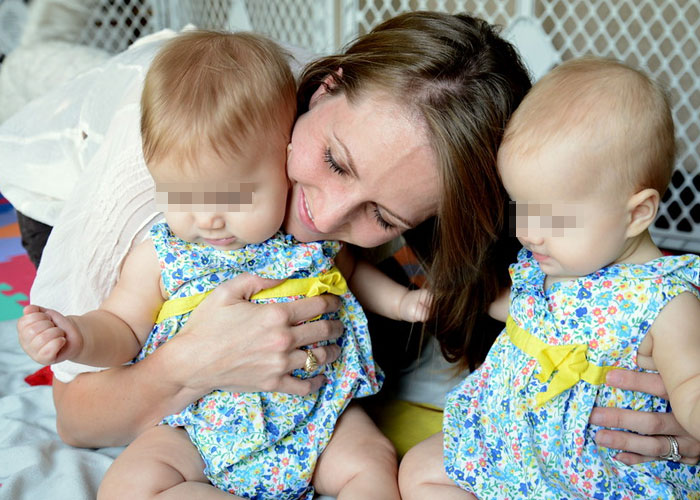
Image credits: Donnie Ray Jones (not the actual photo)
The author also shared some more information about the whole situation
To find out what an expert has to say about raising a child bilingual, we spoke with Lynn How, the author of “Positive Young Minds” who specializes in supporting parents, teachers, and children navigating through mental health issues and prevention. “As a primary teacher of 20 years, I have worked with many children who are bilingual. These children bring so much extra to the classroom as their peers can find out about other languages and I’m always in awe of someone’s ability to speak two or more languages as this is not something that came naturally to me,” Lynn told us.
She continued: “I have heard many times that if you can speak two languages then it is easier to learn a third or even more, so from that perspective, speaking two languages from an early age is very beneficial for future learning as well as career opportunities later in life. More importantly, it keeps the child in touch with their heritage and roots and by speaking their mother tongue (or tongues if their parents are two different nationalities), they are able to easily communicate with any family members who are not themselves bilingual.”
Moreover, by learning a second language of the country they are living in, children will find accessing education easier when they are of school age. “Without those basics of language to access the curriculum they are taught, they are behind before they have started. Schools should always support the situation of a child not speaking the main language taught as sometimes it is unavoidable, but if someone in the family is able to proficiently speak the language, then this would give the child an extra boost when they start school,” Lynn explained.
In the case where a mother speaks one language and a father speaks another, and they both insist on raising their children in their mother tongue, Lynn said that it is parental choice what languages are spoken at home. “We should respect this choice and plan how language can be addressed at pre-school and school if it is a barrier to learning,” she said.
How growing up in a bilingual household affects the child depends on the individual family, Lynn argues. “The general consensus currently on how to go about it is that parents should use whatever strategy promotes high-quality and high-quantity exposure to each of their child’s languages.” It’s also important to realize that early childhood is a time of emotional, social, physical, and cognitive development.
Meanwhile, “Bilingualism may or may not be a priority for families, depending on a child’s other needs. As long as parents are mindful of what their child needs, then a bilingual household should be a positive experience for the child which will help them connect to their cultural roots as well as learn an extra skill,” Lynn concluded.
Most people thought the author was only doing good for her kids and this is what they had to say
245Kviews
Share on FacebookExplore more of these tags
My father's family is spanish, my mother's French. When my sister and I grew up, we learned both languages. My mother's solution was to learn spanish. Speaking several languages is a wonderful gift, don't rob your children of it.
Teenage parents.... He should learn to speak the other language too, he isn't too old to do that. You never know too much languages
Yeah its sad to see such young people being parents. They should be learning, maturing and having fun
Load More Replies...My late husband was a full blood Cherokee. It's a difficult language to learn, and sadly, dying. When my kids were little, I asked the Chief's wife to help me and she taught me so much! I taught my kids what I could and we still use it today. It's a little bit of their dad. Osiyo from Cherokee Nation!
What a wonderful thing to do! All children should be taught not to deny their heritage. It’s perfectly fine to be as proud of everything that makes us unique as we are of everything we have in common with everyone else.
Load More Replies...My father's family is spanish, my mother's French. When my sister and I grew up, we learned both languages. My mother's solution was to learn spanish. Speaking several languages is a wonderful gift, don't rob your children of it.
Teenage parents.... He should learn to speak the other language too, he isn't too old to do that. You never know too much languages
Yeah its sad to see such young people being parents. They should be learning, maturing and having fun
Load More Replies...My late husband was a full blood Cherokee. It's a difficult language to learn, and sadly, dying. When my kids were little, I asked the Chief's wife to help me and she taught me so much! I taught my kids what I could and we still use it today. It's a little bit of their dad. Osiyo from Cherokee Nation!
What a wonderful thing to do! All children should be taught not to deny their heritage. It’s perfectly fine to be as proud of everything that makes us unique as we are of everything we have in common with everyone else.
Load More Replies...
 Dark Mode
Dark Mode 

 No fees, cancel anytime
No fees, cancel anytime 






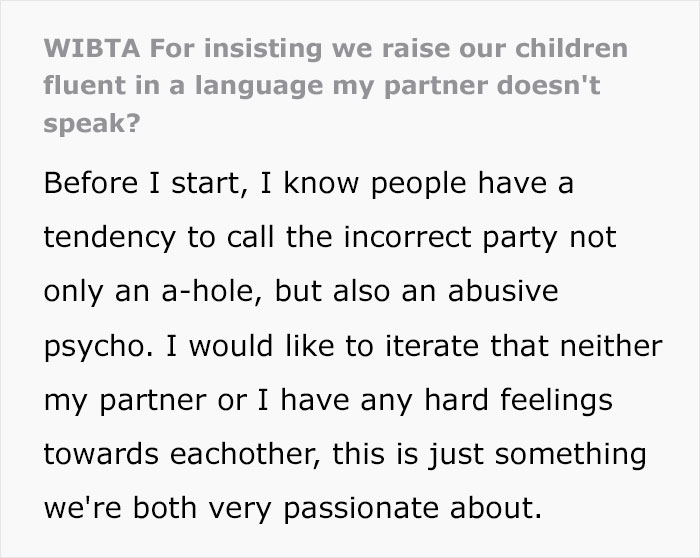
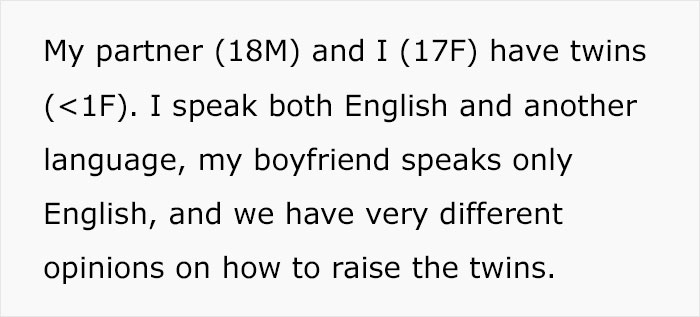

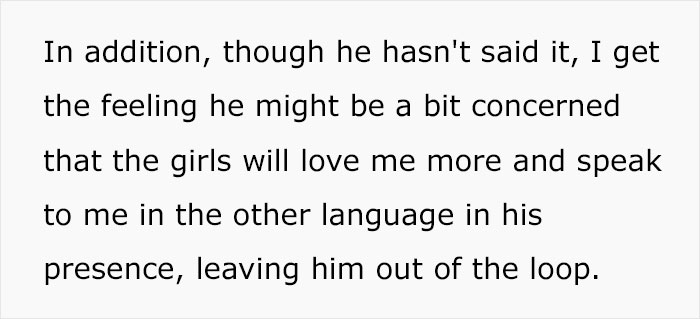
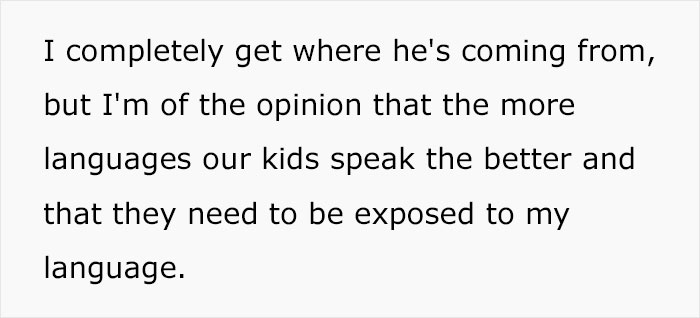

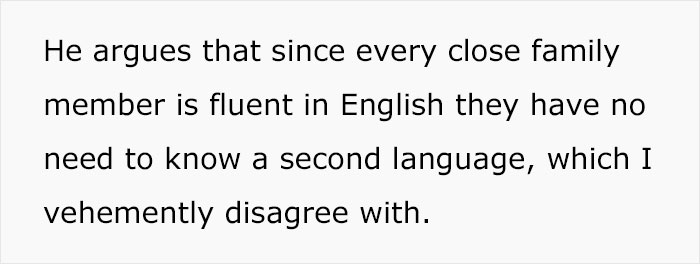
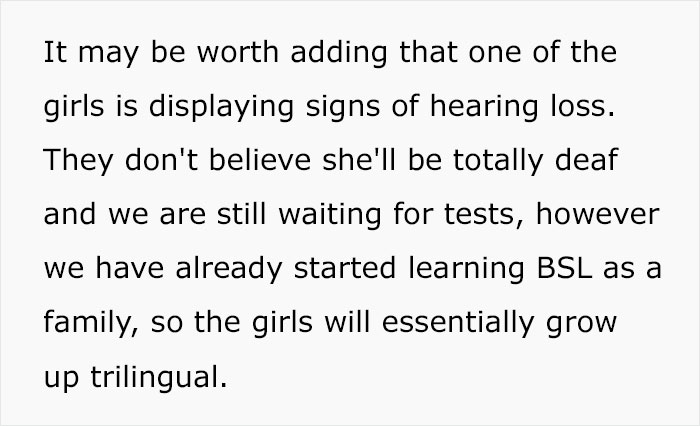
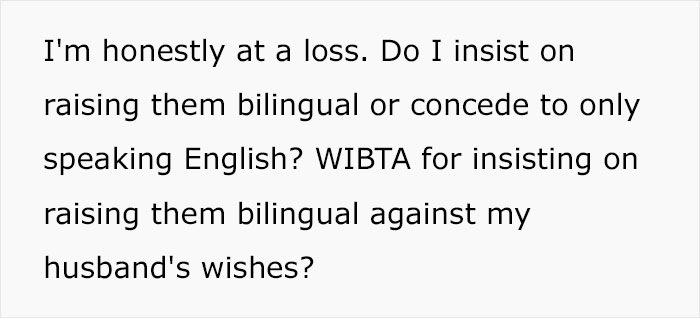
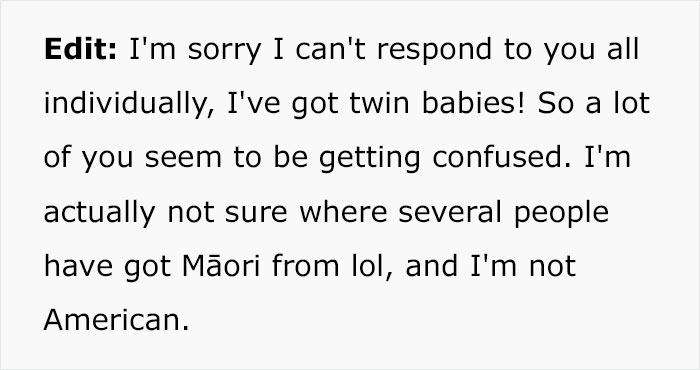
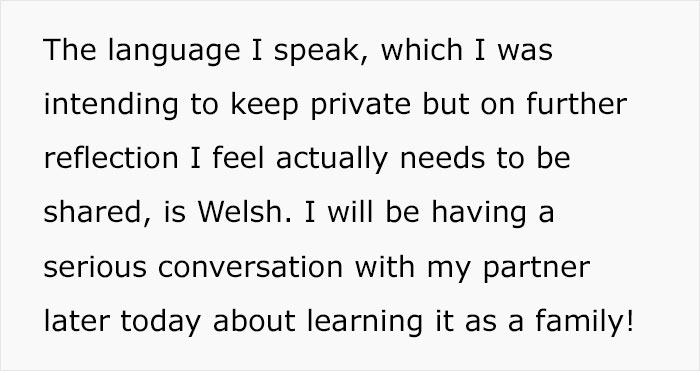
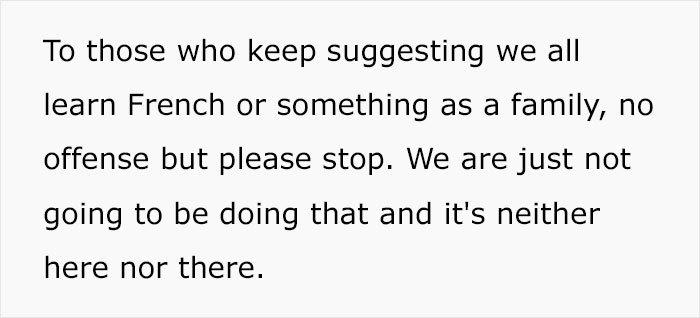

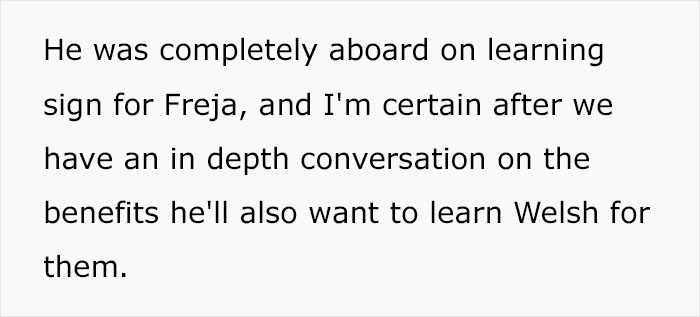
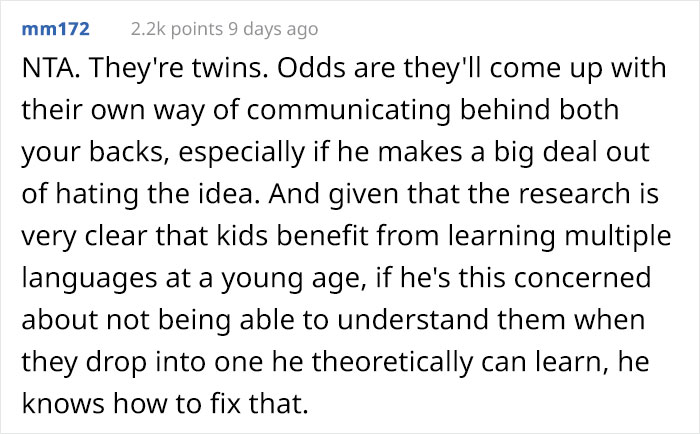

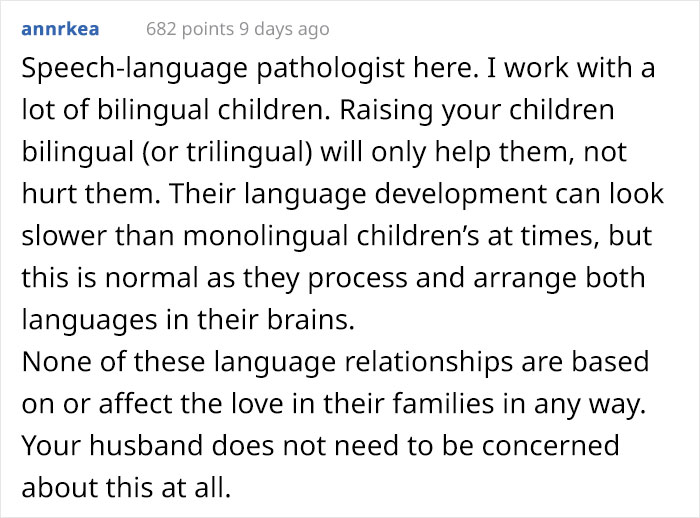

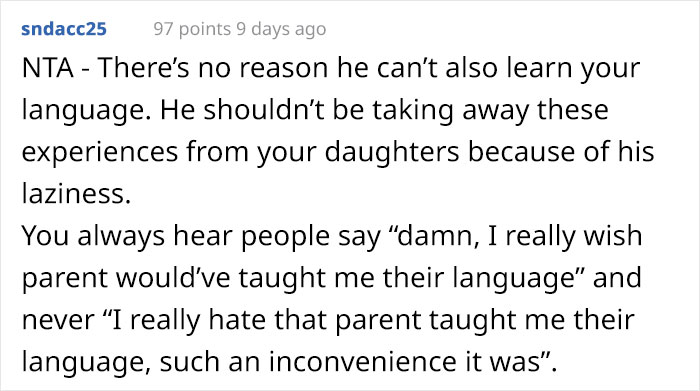
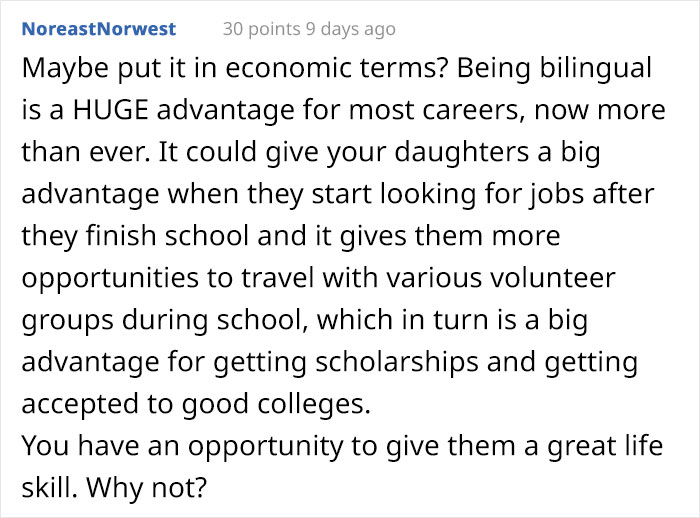













































113
193